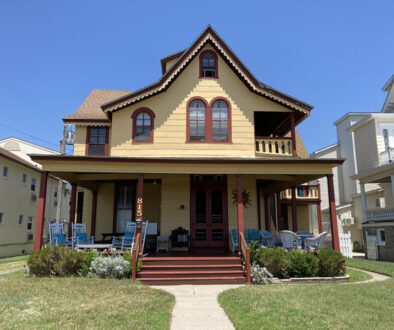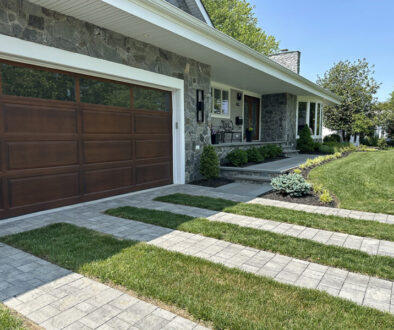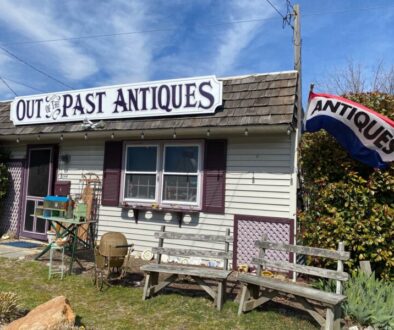A Year on the Conchquest: A Photo Essay

At full volume, my phone’s alarm rings into my ears from a pillow’s length away, and my eyes register nothing but the bright screen that reads November 15, 1:50am. I feel disoriented and sleep deprived. It was hard to fall asleep. Anxiousness and nerves had gotten the best of me.
I get up begrudgingly, eyes still half shut, and walk downstairs. As coffee brews, The Weather Channel shows a light wind, mostly cloudy skies, and a high of 38 degrees. I shower, dress in layers, pack my camera and a few essentials including extra socks. I pour another coffee for the road.
The street is dark and quiet. Porch lights left on overnight illuminate a thin layer of frost covering my windshield as I fumble to open the door, hands full. I head to the dock to go fishing.
This was trip 10 for me, and this routine quickly became my new normal.
Where the parkway ends at Exit 0, Ocean Drive takes you along a stretch of marsh that leads to the docks where the F/V Conchquest resides. The 1974, all-fiberglass, 46-foot Key West “is a worker” says Captain Chris Serra.


Conchquest is a day boat whose main catch is conch, as its name suggests. She is one of the few boats that directly supply H&H Seafood, Two Mile Crab House, and a few other restaurants throughout the neighboring islands. Most of the time it’s a two-man crew, but don’t let that fool you: these boys work. Alongside Chris is his longtime friend and when the title applies, lead deckhand, Joe Rivera.
In the beginning, I would help unload and clean up in exchange for a few photos. Soon enough I was spending every bit of free time I had at those docks. I wanted to learn. Any questions I had were always answered, and trust me, I had a million. This would eventually turn into gear work, deliveries, a few trips, some real work, life lessons, blood, sweat, laughs, some pain, and a second family.
What I can say about my initial season with the Conchquest is that it was my first look at all the work that goes unnoticed—the preparation, research, money spent, and the number of hours put in leading up to that first pot going over the side— that most won’t see, and few will ever understand.
I should probably tell you how I got here.

In early March of 2022, I had been planning my escape to avoid any future northeast winters. I felt my photography was at a stalemate, and my life was at a standstill. And then, I got a text from my longtime friend asking if I wanted to take a ride down to Maryland to pick up last-minute supplies for his boat and the fast-approaching fishing season. I agreed, not really knowing what it entailed and without having much knowledge of commercial fishing. Little did I know this seemingly ordinary trip would alter the next year of my life.
We hitched a trailer to Chris’s truck and headed to the Cape May-Lewes Ferry for our 6:50am departure to Delaware and then a two-hour drive south to our destination, Crisfield, Maryland. We made our way outside to the brisk morning air and cloud-filled, nonexistent sunrise. Almost instantly, with so much enthusiasm and anticipation, Chris started pointing out markers, waterways, and old fishing grounds he’d be ready to fish again soon. This ferry trip differed from previous ones. This was my elementary lesson in commercial fishing. I learned the basics, vocabulary, different species, and a little bit of the wheres and whys.


We made it down and got right to work loading the trailer, packing every available inch of both the pickup’s bed and cab. Crisfield is definitely a story in itself, but I will save that one for a different day. Before our journey home, we grabbed lunch from a locally recommended diner just down the street. Its wood-paneled walls and old school Coca-Cola pump bottles were just one indication that this town is different. The main drag was filled with businesses owned by the same families for nearly 100 years, and like Cape May, everyone knows everyone.
Commercial fishing is tough. Plain and simple, it is damn hard, physically exhausting, and if you let it, emotionally draining.
When you’re not fishing, you are a mechanic, a construction worker, a master of filleting, an engineer, a cook, a listening ear, and a drinking buddy.
Your hands get to the point where they can barely open. Your back hurts. Muscles you didn’t know existed are sore. But at the day’s end, you feel accomplished.

It’s long days and shorter nights. It’s repetitive tasks. It’s endless gear work and repairs. It’s grueling hours and a seemingly never-ending workload. It’s science, math, and Gladwell’s 10,000-hour rule at battle with Mother Nature. Sometimes it is a lucky hunch and a gut feeling.
At its worst, it’s weather that goes from calm winds to white-capped horizons with building swells and there’s not a fish in sight. But at its best, it’s indelible memories. It’s unobstructed sunrises and sunsets. It’s salty air and the best shades of blue. It’s star-filled skies and deafening quiet. It’s delirious laughter at midnight on a dock when you know you should have gone home an hour ago. It’s the worst smells and laughing until you cry because someone took a splash of it to the face. It’s family. It’s learning from your mistakes because you will make them. It’s a marriage to the sea for better or for worse. It’s no quit. It’s becoming comfortable with being uncomfortable. It’s gaining your sea legs. It’s a respect among all in the industry, and man, I love the people.

And it’s realizing that the amount of knowledge I have gained throughout this year will benefit my life way outside the scope of the F/V Conchquest and commercial fishing.



